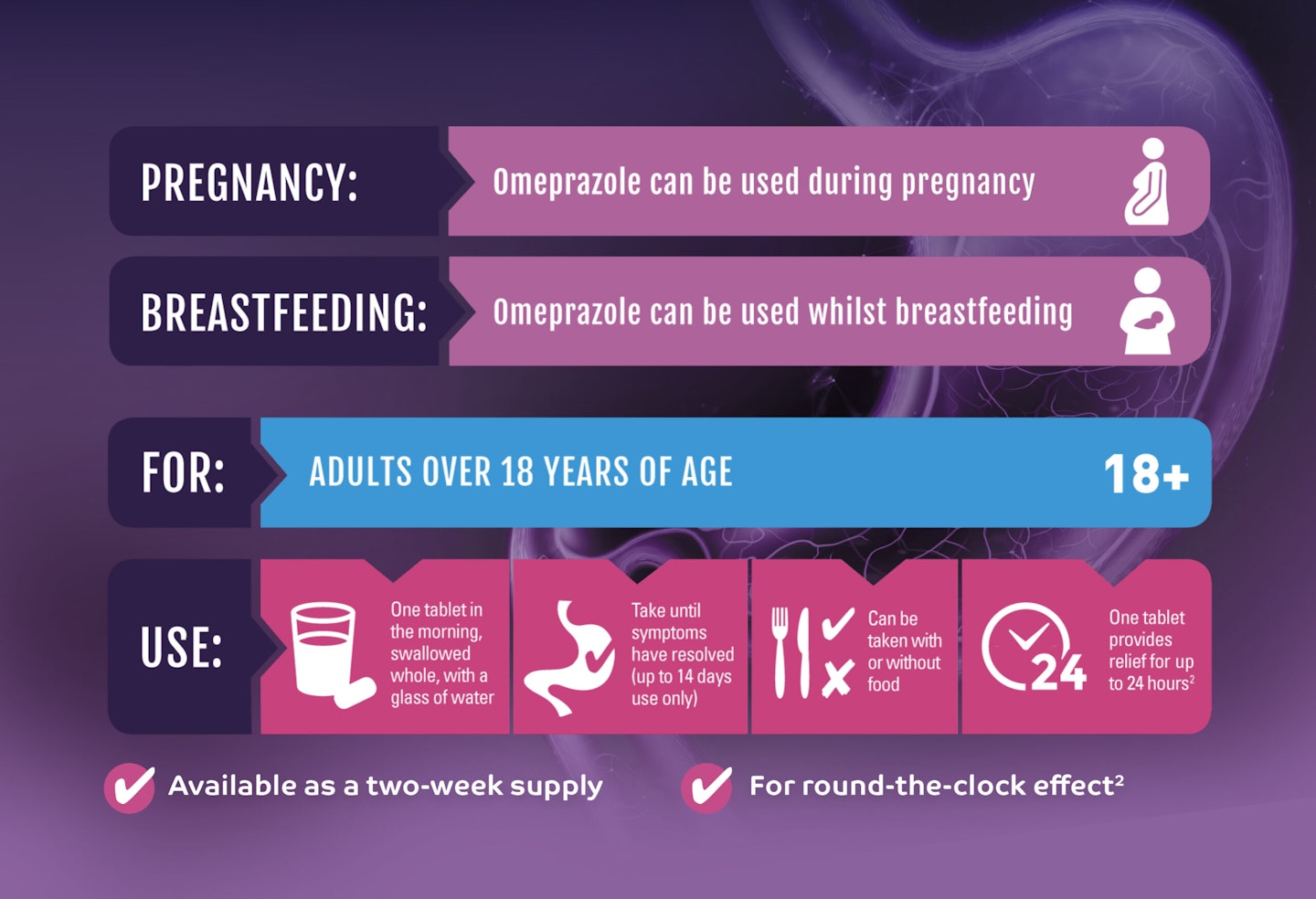Advertisement feature
Pregnancy is an exciting time in so many ways with so much to look forward to!
But as lots of mums-to-be will know only too well, heartburn can be an unwelcome and uncomfortable side-effect.
As many as eight in every 10 pregnant women get heartburn and although it isn’t harmful to your baby it is unpleasant for you!1
Heartburn is caused by acid reflux and often feels like a burning sensation in the chest - sometimes after eating. It can leave you feeling full and bloated, it may make you burp, feel nauseous or even cause you to be sick.
It can happen at any stage of pregnancy but symptoms tend to be more common from 27 weeks onwards as your growing baby presses against your stomach.2
Heartburn in pregnancy can also be caused by hormonal changes2 as progesterone levels increase causing the valve between the stomach and the oesophagus to relax, allowing stomach acid to travel the wrong way up towards the throat.3
Thankfully heartburn usually disappears once your baby is born, but in the meantime what can you do to relieve or prevent it?
Diet
You may be able to control your symptoms, particularly if they’re mild, by making changes to what you eat and drink, cutting down on or avoiding known triggers like spicy or fatty food, chocolate and caffeine.2
As you’re more likely to experience symptoms when you’re full, try eating smaller portions more often and avoid eating late at night or within three hours of going to bed.2
Lifestyle changes
Simple things like sitting up straight when you’re eating can help to take the pressure off your stomach and if heartburn is keeping you awake at night, try propping up your head and shoulders with pillows to stop stomach acid from travelling upwards.2
Can I take medicines for heartburn?
If dietary and lifestyle changes aren’t working, there various treatments to relieve or prevent heartburn.2

Antacids
Antacids act to neutralise the acid in your stomach and some contain alginate which coats the oesophagus (the tube linking the mouth and the stomach) with a protective layer.2/4
Omeprazole
If your symptoms don’t improve through taking antacids and alginates, your GP may prescribe a medicine to reduce the amount of acid in your stomach such as omeprazole.2
Omeprazole belongings to a group of medicines called Proton pump Inhibitors (PPIs) and is a widely used treatment for indigestion, heartburn and acid reflux.5
It works by blocking the proton pump inside the cells which are involved in producing the acid that digests food.5
This helps to reduce the pain or discomfort in your chest or stomach and allows the body to reduce any inflammation caused by stomach acid.6
Can it be used during pregnancy?
Omeprazole is commonly used during pregnancy7 and can be taken while breastfeeding.

It can greatly improve the pain and discomfort of indigestion and heartburn during pregnancy, according to medicinesinpregnancy.org.
If you need help to manage your symptoms or changes to your diet and lifestyle aren’t working, speak to your midwife or GP - they may recommend medicines to ease your symptoms.
Pyrocalm Control® 20mg Gastro-Resistant Tablets is the first branded omeprazole 20mg available over the counter without a prescription.
IMPORTANT: Medicines can affect the unborn baby. Always talk to your doctor or pharmacist before taking any medicine in pregnancy. Pyrocalm Control® 20mg Gastro-Resistant Tablets are for the short-term treatment of reflux symptoms in adults. Contains 20mg Omeprazole. Always read the label.
If you’d like further information, you can find out more about how Pyrocalm Control works via their website, or follow them on Facebook, Twitter or Instagram.
References
2 https://www.nhs.uk/pregnancy/related-conditions/common-symptoms/indigestion-and-heartburn/
3 https://www.netdoctor.co.uk/ask-the-expert/babies-children/a9916/heartburn-during-pregnancy/
7 https://www.medicinesinpregnancy.org/Medicine--pregnancy/Omeprazole/
